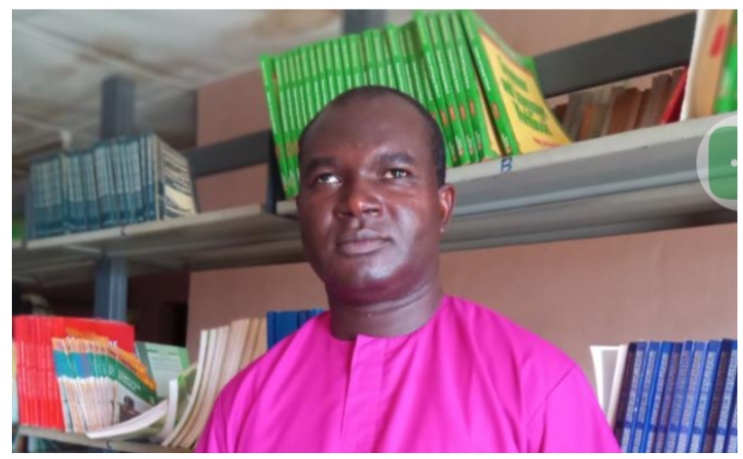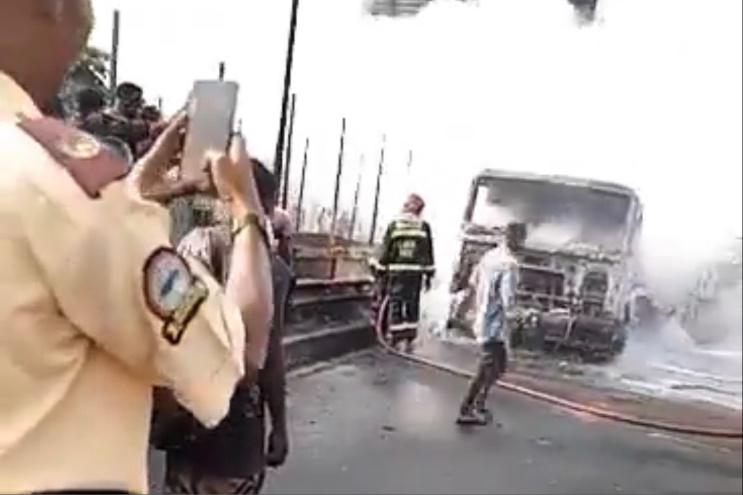
Living in a society that often underestimates the capabilities of Persons with Disabilities (PWDs) and disregards disability etiquettes, Anuoluwa Yinka Isaac stands as a symbol of resilience and determination. I spoke with this remarkable individual to delve deep into his journey, experiences, and the challenges he faces as a blind person who actively moves around in Lagos.
From teaching, vocational training, crafting homemade products, and becoming a headmaster, Anuoluwa’s journey is a testament to the indomitable human spirit. He has not only adapted to his blindness but has also become a source of inspiration for many who have crossed his path.
In this exclusive interview, he opens up about the challenges he faces daily and sheds light on the discrimination and misconceptions society often harbors against PWDs. From navigating public spaces to battling derogatory language, his experiences provide insight into the difficulties PWDs confront, especially in a bustling city like Lagos.
This interview has been edited for clarity and brevity.
Could you please introduce yourself and share a bit about your experiences?
I am Anuoluwa Yinka Isaac, 48, and I became visually impaired 18 years ago due to retinal detachment. My vision gradually deteriorated from 2005 onwards. For three years, I sought diagnoses and treatment options, but financial limitations prevented me from undergoing the necessary surgery.
Five years later, my condition worsened, and I was left with minimal vision in one eye. Undeterred, I enrolled in the Nigeria Society for the Blind Vocational Training Centre in Oshodi in 2010. There, I learned typewriting, mobility skills, and handicrafts, including soap-making.
Is that what you do for a living?
Before losing my sight, I was a dedicated teacher for seven years. I had also gained admission to the National Open University (NOUN) in 2004, but my vision challenges forced me to pause my studies.
In 2011, I embarked on a new venture, creating and selling homemade products like soap and disinfectant. My business flourished, and I later took on the role of primary school teacher in a Missionary school. Ultimately, the school faced financial difficulties and closed in 2015.
Since 2012, I have volunteered for various NGOs, mainly as a vocational facilitator, sharing my expertise and inspiring others to overcome challenges. I believe that despite life’s obstacles, we can all achieve success and make a positive impact on our communities.
How have the challenges shaped your perspective on life?
Society misjudges blind people. They think we’re incapable. Jokes on them! I train sighted people now, and their “You can do that?!” faces shatter stereotypes.
I always hear, “If you can do this, what stops me?” I know I’ve impacted lives. So I prefer to say, “There’s productivity even in my disability,” rather than the common phrase “There is ability in disability.”
Can you tell me about some of the daily challenges that you face?
When I go to the banks, most of them stop me on the way as if I’m a plague coming to their bank. At many hospitals, they look at you as if you are not a human being. At the police station, officers may question my presence and whether I have any valid concerns. Transportation can be a challenge too. Some vehicles in Lagos, like Danfos, refuse to stop because of my situation.
Sometimes, people use derogatory language to describe me. While I have gotten used to it, it’s still not palatable, and there are times that I have to react to it.
You have touched on the issue of societal discrimination. In what ways do you think society can become more inclusive and accommodating?
Society needs a significant reorientation. Now, it seems to revolve around self-interest. People tend to care only when it hits close to home. So, when I approach them, be it at the mosque, church, or even with a desire to help, they see a burden, not a contributor.
It’s time for a reset. We need to instill Ubuntu, this idea that I am because we are. We need to elevate awareness of PWDs, just like the campaigns against gender-based violence. Imagine a society where understanding our challenges carries the same weight as respecting women. That’s the shift we need.
What do you think the government can do that will have a lasting impact on the challenges that PWDs like you currently face?
True change starts with individuals, not just the government. A society that understands and embraces PWDs will naturally elect representatives who champion their needs.
Awareness campaigns, like those addressing gender-based violence, can shift societal attitudes towards PWDs.Government institutions and public places must prioritize accessibility to create inclusive spaces.
The Blue Line Rail’s PWD-friendly features are a step in the right direction, but more needs to be done. By raising awareness, we can foster a society where PWDs are valued, empowered, and contribute fully.
What advice would you give to others who may be interacting with blind individuals to ensure better understanding and inclusion?
We have many vocabularies that people use that are very derogatory, especially in Yoruba. Words like “Abirun”, “Akanda eda”, “Onipe ni ija oju” are derogatory. Just like you don’t call a woman that is not married “Iyawo”, you should not use those words for PWDs. People should choose their words carefully so that people like me don’t feel humiliated.

